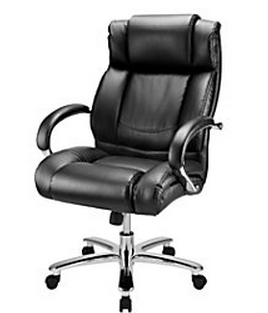How to Start a Remote Support Business
Welcome to Call That Girl’s Guide to starting a computer repair and support business blog series. If you found a blog out of order, you can start with the first blog by clicking here How to start a computer repair business. Each blog will lead you to the next one until you reach the final blog.

In this series I will give tips, examples and information about how to start a computer repair business that I learned my way. I will also offer help on what type of computer repair business to start, business and legal information, products and services you can sell, tools your computer repair busines might need, a guide to pricing, a list of resources, and marketing advice.
In this blog, I will talk about starting a remote support business.
When I started my business part-time in 2003, I was already doing remote support at my job at the Mayo Clinic in Rochester, MN. In fact, that’s all I did. Only on very rare occasions was I asked to go onsite (Usually some Outlook emergency for a top Dr). I worked in a call center and troubleshooting software is a heck of a lot different than supporting hardware. In fact, when I got the job, I remember sitting next to my team members and I could tell that all the guys all were definitely not in the position they wanted there, most wanted to be onsite techs, work as an Analyst or be on the LAN team. Helpdesk, as many see it as a stepping stone job…was the job for me. This is where I found the love for remote support. I could manage many things at once from my one happy bench, my master computer. Backing up a bit, you might wonder how did I start Call That Girl at the Mayo Clinic when I didn’t go onsite? Well friends, I got friendly with the staff calling in and they asked me to come over after work to fix their home computers. Without much hardware knowledge, I can’t say that I messed up too many jobs. I left with a few bucks in my pocket and realized that “hey, I can do this”. For the next four years, I did only onsite home jobs. It was all software usually, side-by-side support I called it.
In 2007, as you might have read in my blog series “How to start a computer business” and in my , I discuss more in depth about remote support and how I got going (I found onsite to be a waste of time and gas for quick software fixes).
Remote support is all about being efficient, being more affordable (for some fixes) and maximizing your bench to be a master computer that can do many things at once. Most experienced technicians should be able to manage at least 3 and up to 5 non-talking-to client jobs at once, such as virus removals & tune ups. If you are on the phone with a client, of course you should only be with them, but heck…if you’re doing a virus removal in the background…well, there is nothing wrong with that unless you are not paying attention to your talking client. After 7 years of doing onsite jobs, running 3 brick and mortar stores, I gave it all up for remote support only. It took awhile, but eventually I trained all of my clients how I can serve them and they accepted my offer. I have now moved into MSP type offerings, more services, better packages, and I have to say, I’m doing quite well for myself finally. This might not be the life for you, but if you love talking on the phone, love software and helping clients, this is perfect for you, too!
Here is a short list of hardware and software you might need
 Hardware
Hardware
- 2+ monitors: I have one 19″ monitor, 1 24″ monitor
- Desktop HP Pavilion, 8 gigs of memory, 64 bit, Windows 7 Home Premium, AMD 2.10 GHz Processor
- Set of speakers
- iPhone holder that is stationed on my desktop
- USB chargers for my phone
- Plantronics Bluetooth has a charger that also charges my NetGear ATT HotSpot (in case my internet blows)
- External hard drive
- That’s all for hardware, except my killer Queen’s chair (built for a woman of size). Good chair, HIGHLY recommended. If you are a big person, this is the chair for you! Best computer chair in the world.
Software
- Remote Support Software: I use LogMeInRescue. I also Support Instant Housecall.
- Ticketing System: Mhelpdesk.
- Back up Tech Support (GFI sales, SOS online backup and helpdesk): RS Tech Team
- File sharing, I use Dropbox for day to day, Click here to test it out.
Lisa’s Marketing
Feel free to leave a comment if this blog helped you! I am enjoying reading and replying to them.
- Sign up for my newsletter here
- If you’re looking to earn money just by talking about me to your friends, check out my referral program here
- Subscribe to my YouTube Channel
- Follow me on Facebook
- Invite me on LinkedIn
- Follow me on Twitter





